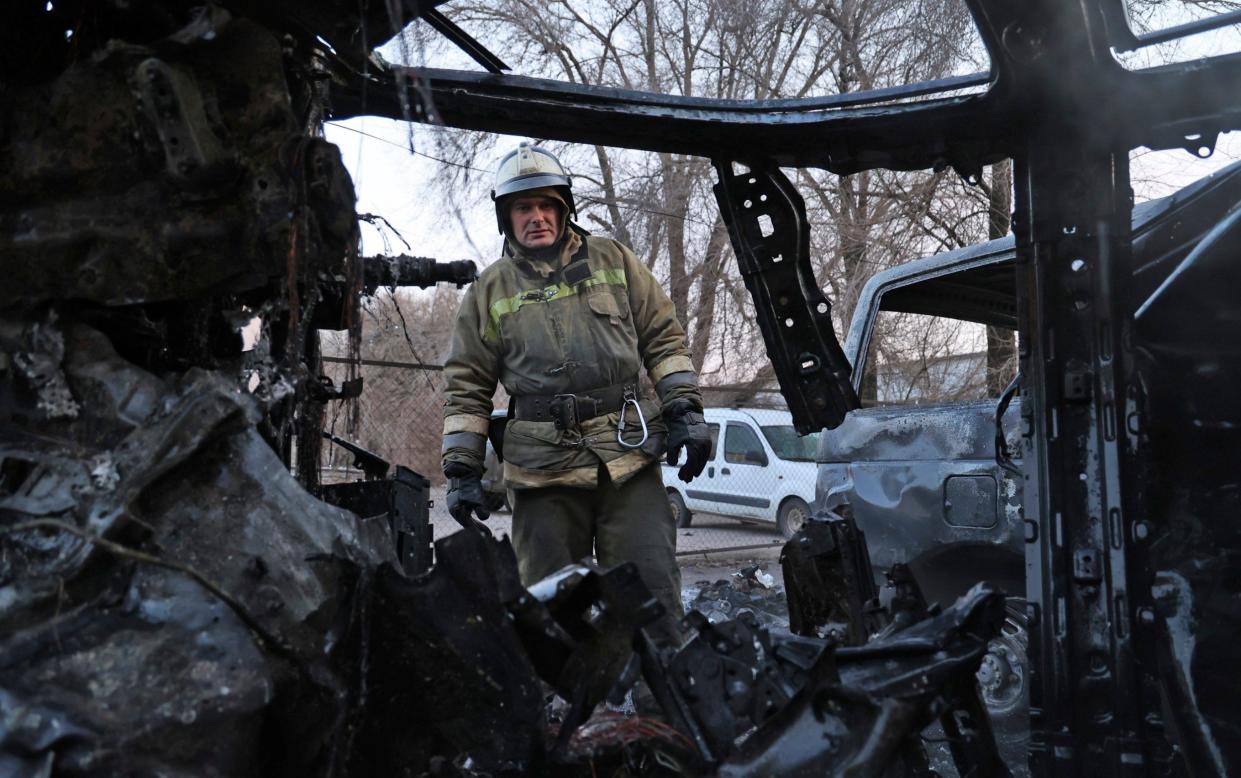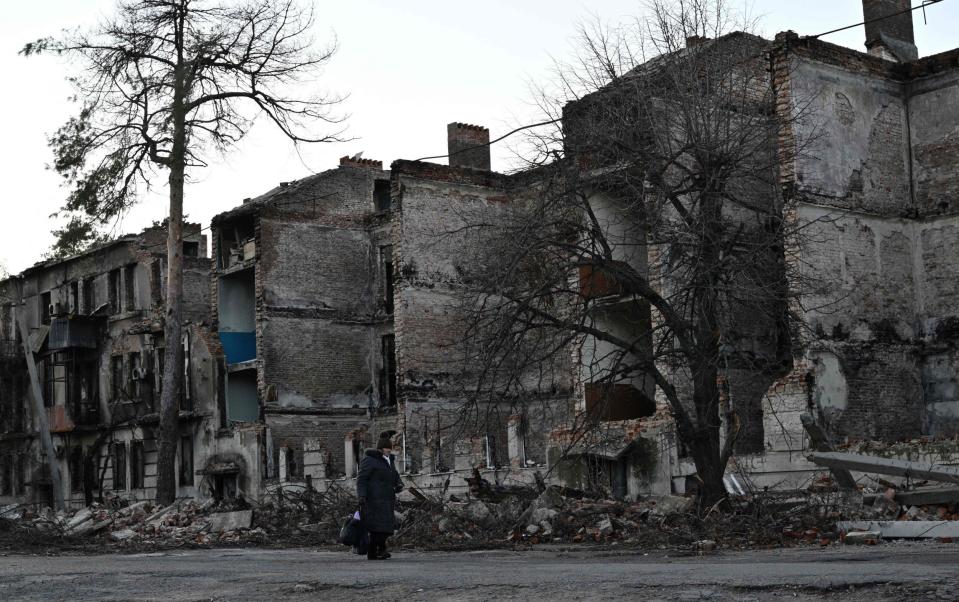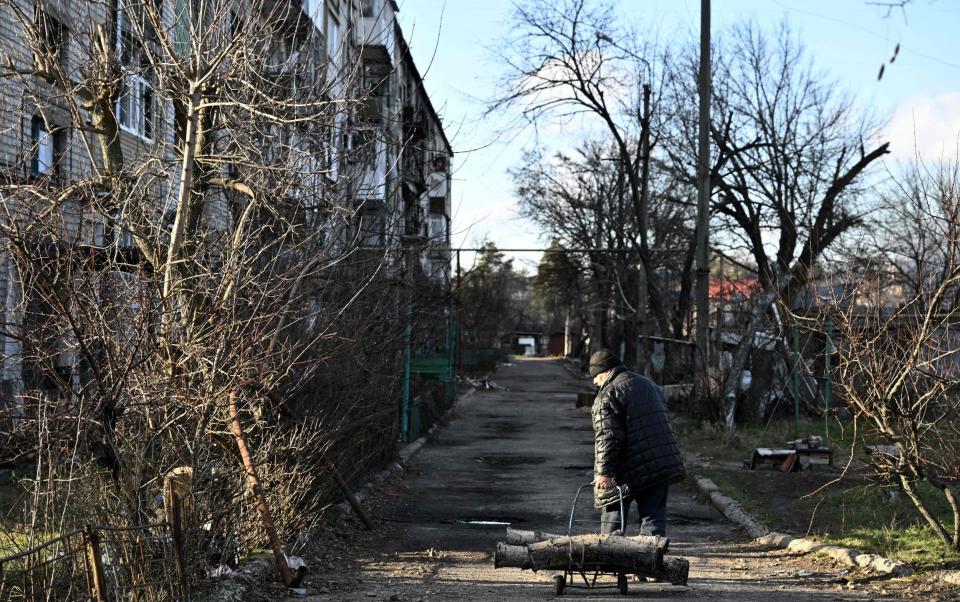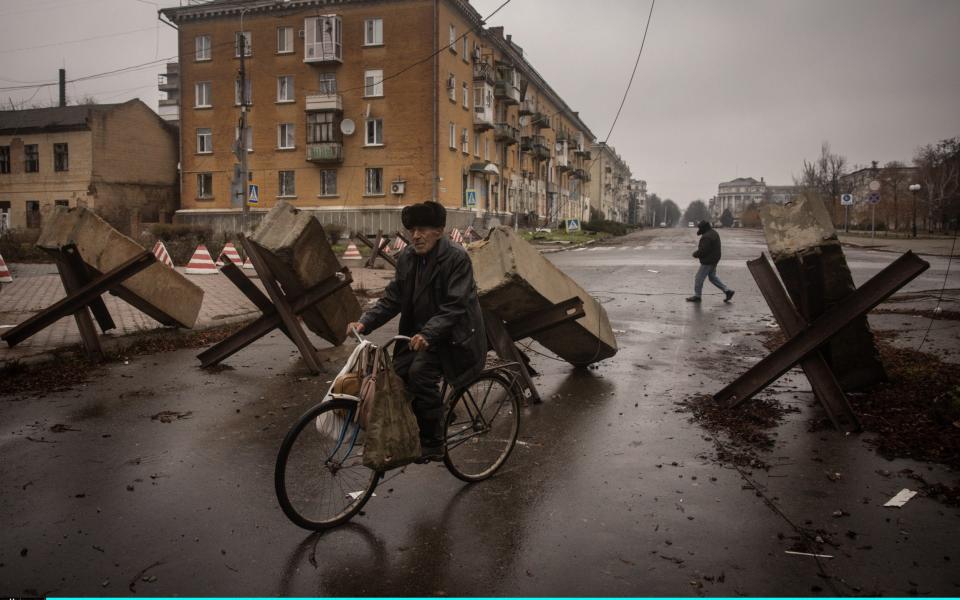Russia preparing large-scale offensive deep into Ukraine as far as Kyiv

Russia is preparing to launch a large-scale offensive in the new year, building up its forces to advance deep into Ukraine as far as Kyiv, Ukraine's top commander has warned.
General Valery Zaluzhny, commander-in-chief of the armed forces, said the attack could come "in February, at best in March and at worst at the end of January".
He warned that Vladimir Putin's mobilisation drive "has worked" and Russia is now reconstituting its troops to overturn embarrassing defeats this summer and gain more territory.
"They are 100% being prepared... I have no doubt they will have another go at Kyiv," he told The Economist.
It comes as Ukraine on Thursday sought to take the initiative around Donetsk, launching its biggest wave of strikes on the Russian-occupied city since 2014.
The missile strikes followed reports that Russia is already preparing fresh advances from around the city, heading westward to capture more Ukrainian territory.

Alexei Kulemzin, self-proclaimed mayor of Donetsk, accused the Ukrainian army of hitting the city centre with Grad missiles, calling it “the largest-scale strike” since Russia-backed forces occupied eastern Ukraine eight years ago.
The city of Donetsk, once the commercial capital of Ukraine, is situated less than 15 kilometres from the front line but it has been spared incessant attacks that its suburbs on both sides of the front line came under in recent months.
Footage from the central Voroshilovsky district of Donetsk showed substantial damage, including several residential buildings.
One projectile appeared to have hit the local cathedral, piercing through the dome and landing in front of the altar.
The attack, which local territorial defence said injured at least nine people including a ten-year-old child, follows intensified fighting in the region.
The Institute for the Study of War in its daily briefing on Thursday forecast a Russian offensive outside the city as one of two major axes of advance in the coming months.
The think-tank said it “continues to assess that Russian forces seek to complete the capture” of all of the region and the western outskirts of Donetsk where the Ukrainian shells were likely launched from.
Ukrainian authorities on Thursday morning reported Russian shelling of villages to the west of Donetsk as well as a major attack on Kherson in the south that Russian troops retreated from just a month earlier.

In the neighbouring region of Luhansk, Ukrainian authorities claimed to have destroyed a Russian military base in the town of Kadiivka as a government Telegram account posted a short video of what appears to be an explosion.
Luhansk separatists on Thursday reported overnight shelling of the town but did not comment on the reports of the base being struck.
Despite recent successes on the battlefield, Gen Zaluzhny warned in his interview: "The enemy shouldn’t be discounted. They are not weak…and they have very great potential in terms of manpower."
Russia 'may not have firepower' for offensive
Michael Kofman, a prominent war analyst, said Russia may not have the firepower for a large-scale offensive.
"It is difficult to square expectations (implied in this interview) that Russia could restore offensive potential on a large scale, with Western estimates on dwindling stockpiles of artillery ammo & precision guided munitions," he said.
Elsewhere on the battlefield on Thursday there were heavy clashes up and down the front lines, and beyond.
In southern Ukraine on Thursday, Kyrylo Tymoshenko, deputy chief of the Ukrainian president’s staff, said two people were killed in a Russian attack on the centre of Kherson.
Russian shells landed on Thursday morning “just 100 metres away from the headquarters of the Kherson regional administration that came under attack yesterday.”

Local officials later said Russian shells damaged a building that housed a humanitarian aid distribution point and an emergency aid centre and killed a paramedic and a local resident who was there to receive an aid package.
Russian shelling by late Thursday afternoon left the entire city without electricity, local governor Yaroslav Yanushevych said, adding that constant shelling made it impossible for utility workers to repair the damaged power grid.
Authorities in Kharkiv on Thursday evening reported the first major Russian attack in days, saying that Russian S-300 missiles struck unspecified facilities.
Series of unexplained explosions in Russia
Meanwhile in Russia, a series of unexplained explosions that ripped through factories, shopping malls and other facilities across the country continued on Thursday as an oil refinery in the eastern Siberian city of Angarsk caught fire.
Igor Kobzev, the governor of the Irkutsk region where the city is located, said the fire killed two and injured five people. He attributed the blaze to a “gas contamination” and did not allude to any potential Ukrainian involvement.
Attacks earlier this week on barracks in Melitopol have seen a crisis at field hospitals inside Russian-held territory, Ukraine said last night. A spokesperson for the Ukrainian armed forces said: "Due to the overflow of medical institutions and morgues in the city of Melitopol, the Russian invaders are transporting corpses and evacuating wounded servicemen to the temporarily occupied Crimea.
"In order to replenish the current losses, the invaders are forced to supplement the operational-tactical command level with retired officers, released to the reserve, and even retired officers. They are sent to the area of hostilities."
In Ukraine, a government-supported initiative aimed at encouraging Russian soldiers who were called up to fight by a Kremlin mobilisation this autumn, said on Thursday they have already fielded requests from over 4,300 soldiers who were looking for a way to lay down arms and surrender.
Vytaly Matviyenko, spokesman for the I Want to Stay Alive initiative, said Ukrainian volunteers have yet to arrange a safe way for all of those soldiers to safely surrender.

 Yahoo News
Yahoo News 
